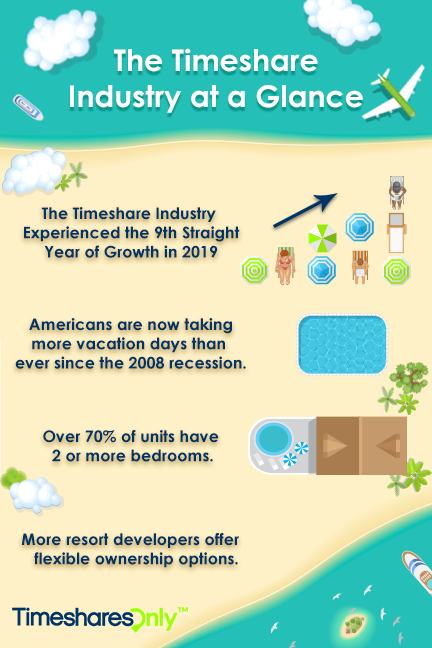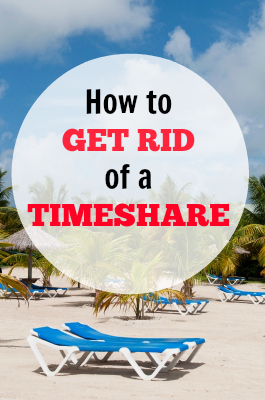Some timeshares provide "flexible" or "drifting" weeks. This arrangement is less stiff, and allows a purchaser to choose a week or weeks without a set date, but within a particular time period (or season). The owner is then entitled to schedule his/her week each year at any time during that time period (topic to schedule).
Because the high season might extend from December through March, this gives the owner a little vacation flexibility. What type of property interest you'll own if you buy a timeshare depends upon the kind of timeshare bought. Timeshares are usually structured either as shared deeded ownership or shared leased ownership.

The owner receives a deed for his or her percentage of the system, specifying when the owner can utilize the home. This implies that with deeded ownership, numerous deeds are issued for each property. For instance, a condo unit offered in one-week timeshare increments will have 52 overall deeds when fully offered, one provided to each partial owner.
Each lease agreement entitles the owner to utilize a specific property each year for a set week, or a "floating" week throughout a set of dates. If you buy a rented ownership timeshare, your interest in the property usually expires after a specific term of years, or at the current, upon your death.
This means as an owner, you may be limited from offering or otherwise transferring your timeshare to another. Due to these factors, a rented ownership interest may be acquired for a lower purchase price than a comparable deeded timeshare. With either a leased or deeded type of timeshare structure, the owner buys the right to use one specific residential or commercial property.
To offer greater flexibility, numerous resort advancements get involved in exchange programs. Exchange programs enable timeshare owners to trade time in their own property for time https://postheaven.net/ryalasi4pl/timeshare-trip-plans-have-actually-been-around-in-the-u-s in another getting involved home. For instance, the owner of a week in January at a condominium system in a beach resort may trade the property for a week in an apartment at a ski resort this year, and for a week in a New York City accommodation the next (how to transfer timeshare ownership).

Typically, owners are limited to choosing another residential or commercial property categorized comparable to their own. Plus, additional costs prevail, and popular homes may be difficult to get. Although owning a timeshare methods you won't need to throw your money at rental accommodations each year, timeshares are by no methods expense-free. Initially, you will require a portion of money for the purchase rate.
Get This Report about How To Remove Timeshare Foreclosure From Credit Report
Given that timeshares rarely preserve their worth, they will not get approved for financing at the majority of banks. If you do discover a bank that accepts fund the timeshare purchase, the interest rate is sure to be high. Alternative financing through the developer is typically readily available, however once again, just at high rates of interest.
And these fees are due whether or not the owner uses the home. Even even worse, these charges frequently intensify continually; in some cases well beyond an inexpensive level. You might recoup a few of the expenses by renting your timeshare out throughout a year you don't use it (if the rules governing your particular property permit it).
Acquiring a timeshare as an investment is Additional resources hardly ever an excellent concept. Since there are a lot of timeshares in the market, they rarely have great resale capacity. Instead of appreciating, most timeshare diminish in worth when acquired. Numerous can be difficult to resell at all. Instead, you need to think about the worth in a timeshare as an investment in future trips.
If you holiday at the very same resort each year for the exact same one- to two-week duration, a timeshare might be a great way to own a residential or commercial property you enjoy, without incurring the high expenses of owning your own home. (For details on the costs of resort own a home see Budgeting to Buy a Resort House? Costs Not to Neglect.) Timeshares can likewise bring the convenience of understanding just what you'll get each year, without the inconvenience of scheduling and renting lodgings, and without the worry that your preferred location to stay will not be offered.
Some even provide on-site storage, enabling you to easily stash equipment such as your surfboard or snowboard, preventing the hassle and expenditure of hauling them back and forth. And just because you may not utilize the timeshare every year does not indicate you can't take pleasure in owning it. Many owners delight in periodically loaning out their weeks to pals or relatives.
If you don't wish to vacation at the same time each year, flexible or floating dates supply a great choice. And if you want to branch off and check out, consider utilizing the home's exchange program (ensure a great exchange program is offered prior to you buy). Timeshares are not the very best solution for everyone (how do you sell your timeshare).
Also, timeshares are typically not available (or, if offered, unaffordable) for more than a few weeks at a time, so if you usually getaway for a two months in Arizona during the winter season, and spend another month in Hawaii during the spring, a timeshare is most likely not the very best choice. Furthermore, if conserving or earning money is your number one issue, the absence of investment capacity and continuous expenditures involved with a timeshare (both discussed in more information above) are certain downsides.
Getting My How To Get Timeshare To Work
The purchase of a timeshare a way to own a piece of a holiday home that you can utilize, usually, when a year is often an emotional and impulsive decision. At our wealth management and planning company (The H Group), we sometimes get questions from customers about timeshares, the majority of calling after the fact fresh and tan from a vacation wondering if they did the right thing.
If you're thinking about buying a timeshare, so you'll have a location to holiday regularly, you'll wish to understand the different types and the advantages and disadvantages. (: Timely Timeshare Tips for Families) First, a little background about the four types of timeshares: The purchaser normally owns the rights to a specific unit in the very same week, year in and year out, for as long as the agreement stipulates.
With a fixed-rate timeshare, the owner can lease out his block of time or trade with owners of other residential or commercial properties. This type of arrangement works best if you have a highly desirable area. The buyer can book his own time throughout a given period of the year. This option has more flexibility than the set week version, however getting the exact time you desire may be tough when other investors snap up a number of the prime periods.
The designer maintains ownership of the residential or commercial property, however. This is comparable to the floating timeshare, but purchasers can remain at various places depending upon the amount of points they've built up from buying into a specific home or purchasing points from the club. The points are used like currency and timeslots at the property are reserved on a first-come basis.
Therefore, using a really pricey residential or commercial property could be more cost effective; for something you don't need to stress over year-round upkeep. If you like predictability, you have a ensured trip location. You might have the ability to trade times and places with other owners, enabling you to travel to new places.